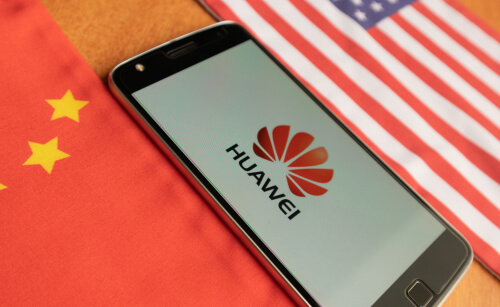When it comes to getting through conflict, American innovation is critical for giving the U.S. an advantage.
One of the main places threatening that innovation? According to many experts and the U.S. government, it is China, which systematically steals intellectual property from the United States.
Listen to our related podcast on nation-state hackers to hear some examples of this:
Or you can read a related story: 8 Steps Huawei Took to Steal IP from T-Mobile and Cover It Up.
And when this narrative was discussed amid the 5G technology debate, it led lawmakers to establish the 2019 National Defense Authorization Act (NDAA) to limit U.S exposure to Chinese technology.
The reality is, it's a lot harder than it looks. And now an industry group is asking for more time to implement a key part of it.
Parts of the NDAA and challenges with implementing it
According to Hawk Carlisle, retired Air Force general and president and CEO of the National Defense Industrial Association (NDIA), implementing the 2019 National Defense Authorization Act is already proving to be complicated.
In fact, he says it could hurt the U.S. in the short term:
"...these actions, however, could dramatically impact the health and size of the defense industrial base."
If you need a refresher on the act, Carlisle just published one of those too:
In the 2019 National Defense Authorization Act, Congress took the dramatic step of banning government procurement of products from Chinese companies Huawei, ZTE, and their affiliates.
The Congressional ban—contained in Section 889 of the fiscal year 2019 NDAA—has two parts:
- A U.S. government agency prohibition against purchasing any telecommunication products containing Huawei or ZTE components after August 2019
- A U.S. government agency prohibition against purchasing any products from any companies that use Huawei or ZTE equipment or components within their internal systems as of Aug. 13, 2020
The first step of this plan is already proving difficult. But Carlisle says the second part is even harder:
"It stretches far beyond government procured products and services, requiring insight into and potential oversight of the way U.S. and non-U.S. companies conduct business more broadly, in order to protect and defend U.S. interests. This policy that has significant potential for disruption hinges on predatory Huawei and ZTE business strategies."
And what are those business strategies? Carlisle outlines those as well.
"After stealing American and allied IP they file for Chinese patents, providing them with cutting edge technology without the associated research and development costs. Huawei and ZTE pass their 'savings' onto customers, creating a dependency on their low-cost products and components. This strategy leads to broad penetration of the international business market and throughout the U.S. and allied defense industrial bases."
It's a challenging problem to solve, and a challenging act to implement. And much of it comes down to how we read this document.
"A strict reading of the statute requires the department to demand companies large and small to replace current equipment and internal systems to qualify for Defense Department contracts and business. This demand will ripple through existing and emerging contracts, impacting everyone from the largest multinational contractors down to companies receiving prime contracts under small business set-asides."
That's why the National Defense Industrial Association is warning that to fully implement the NDAA on its current timeline will cause pain.
Interested in Carlisle's post on this topic? Check it out here.





